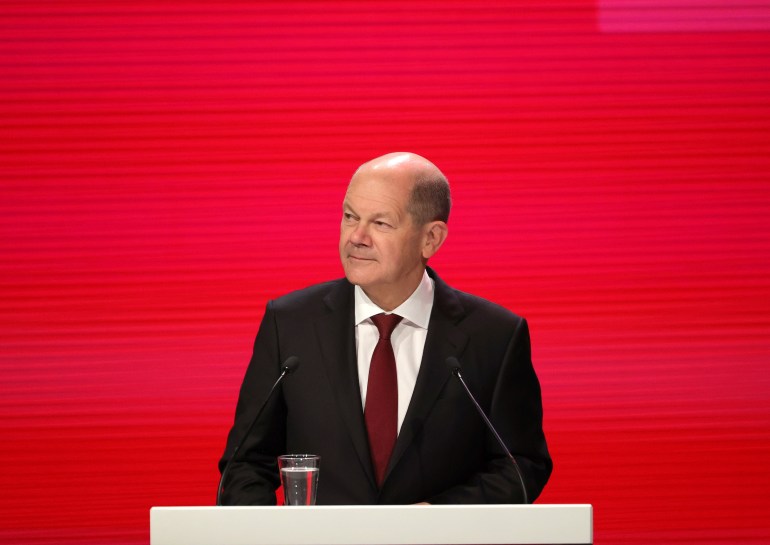German parties are locked in tough negotiations to form the first government after Chancellor Angela Merkel, as they face tensions over the climate and the finance portfolio that may delay the timetable.
After the Social Democratic Party narrowly won the legislative elections on September 26, the way seemed to be drawn for the first coalition with environmentalists and liberals of the Free Democratic Party, who are determined to participate in a government after many years in the opposition.
However, negotiations are stalled, and completing the process by the end of November, before the Social Democrat Olaf Schultz is elected as chancellor, has become a difficult goal to achieve.
The Greens, who came third in the elections - after the Social Democrats and conservatives from the CDU and Christian Social Union - have issued a warning in recent days about the path taken by the 22 working groups and 300 experts tasked with drafting the coalition agreement.
big delay
"We see very little progress at the moment on the substance of policy to be followed, particularly on the climate front," said Federal Greens Executive Director Michael Kellner.
And he continued in a message addressed to the environmental defense associations, who are apprehensive about concessions that the party made too easily, saying that "the exploratory document (which precedes the coalition agreement) unfortunately lacks in some of its passages the necessary clarity."
"We can't yet say when (the coalition agreement) will be ready because we can't yet say we've done the work on the pivotal projects," Greens co-chairwoman and former candidate for chancellor Annalena Birbock said on Friday morning.
"If we have to take climate protection seriously," she added, all parties must show this, not just environmentalists.
Birbock specifically referred to the transportation sector, which suffers from a "significant delay" in terms of environmental transformation, which the current negotiations do not allow to address, she said.
The Greens have so far waived a number of their demands, especially the request to impose a speed limit on public roads, which is one of the promises of their electoral program, but they succeeded in extracting an approximation of the deadline for abandoning coal to 2030 instead of the originally planned 2038.
"We haven't gotten to the point where we can say we're headed toward a target" of 1.5 degrees Celsius, Birbock warned when the COP was in session.
Battle over finances
There are also other differences between the Greens and the liberals, who came fourth in the elections and are determined to seize power after abandoning in 2017 the alliance with the conservatives led by Merkel.
Liberals and Greens are squabbling over the finance portfolio, the strategic position that served as Schultz's gateway to the chancellery.
Olaf Schultz was Minister of Finance before his party's victory in the elections that qualified him for the post of chancellor to succeed Merkel (Reuters)
Liberal Democrat leader Christian Linder is striving for this ministry, a goal also pursued by Greens co-chair Robert Habeck.
The liberals seem determined to fight a battle for this ministry, warning that not appointing their leader at its head would be a "slap", in the words of one party leader Wolfgang Kubeck.
But members of the Greens are wary of leaving this position to liberals sticking to their view of short-term fiscal tightening, warning that the costs of the climate crisis may be enormous in the long run.
Titanic ship
One of the Greens' negotiators, Konstantin von Notz, cited the Titanic to describe the current predicament.
In the end, Habeck, who previously gave up running in the elections, may inherit a major portfolio, the climate portfolio.
The two parties also differ over immediate health coverage for refugees, which the Greens are calling for.
Also, the storage of American nuclear weapons on German soil is one of the obstacles in the way of talks with the Greens, which makes the rejection of any arms race a fundamental political principle.

